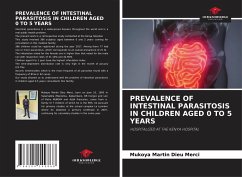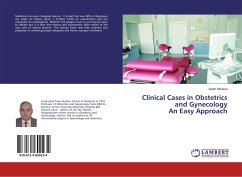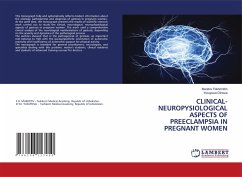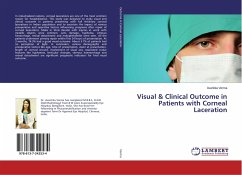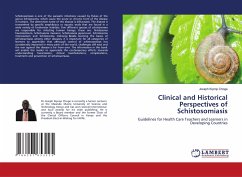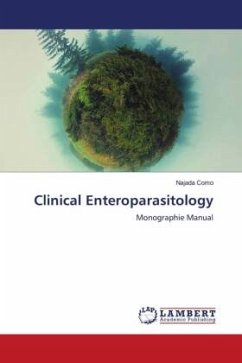
Clinical Enteroparasitology
Monographie Manual
Versandkostenfrei!
Versandfertig in 6-10 Tagen
24,99 €
inkl. MwSt.

PAYBACK Punkte
12 °P sammeln!
Intestinal parasites are presented in all countries of the world, regardless of their level of socio-economic development or the health system. The WHO states that in the world there are about 3.5 billion people affected, of which about 450 million of them are sick. They are one of the major public health problems in developing countries, but not only, affecting about 1/6 of the world population and being a risk factor for children, pregnant women and subjects with compromised health. Their distribution is not the same in different countries and this depends a lot on a series factors which are...
Intestinal parasites are presented in all countries of the world, regardless of their level of socio-economic development or the health system. The WHO states that in the world there are about 3.5 billion people affected, of which about 450 million of them are sick. They are one of the major public health problems in developing countries, but not only, affecting about 1/6 of the world population and being a risk factor for children, pregnant women and subjects with compromised health. Their distribution is not the same in different countries and this depends a lot on a series factors which are explained in this book. However, all researchers of the problem think that the frequency of these parasites is much higher than reported. This is because studies in this area are not numerous, systematic, and spread in different contingents of populations; even though they are often sporadic.Therefore, the real incidence and prevalence of enteroparasitosis is perceived to be everywhere, more or less, deficient. This phenomenon, today in the age of globalization and super-migration, which conditions the uncontrolled spread of infectious diseases, is even more unknown.



